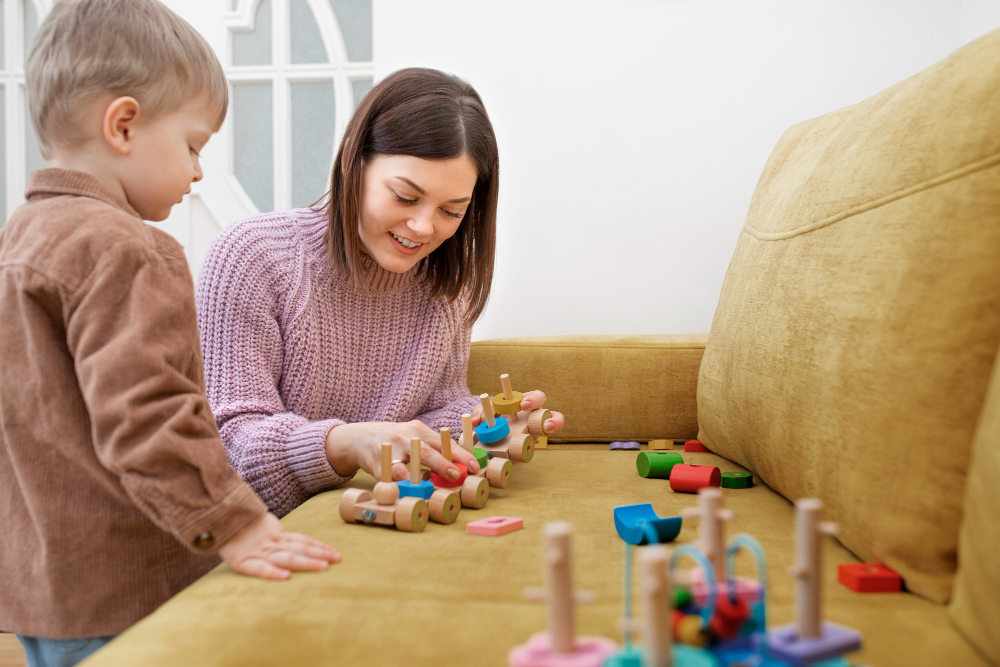How Long Does Play Therapy Take to Work? A Complete Overview
When children face emotional challenges, play therapy often offers hope—but how quickly does it deliver results? Is it a matter of weeks, months, or something more complex? While every journey is unique, there are patterns that shed light on its timeline. This overview explores how play therapy works, its duration, and the factors shaping its effectiveness.
TL;DR
The effectiveness and duration of play therapy vary based on a child’s age, developmental stage, type of challenges, session frequency, and family involvement. Complex issues like trauma or behavioral disorders may require longer treatment, while regular sessions and active parental participation can accelerate progress. Play therapy provides a safe space for children to express emotions, build social and problem-solving skills, and strengthen family bonds. Success depends on realistic expectations, consistency, and tailoring therapy to each child’s unique needs, with gradual progress leading to lasting emotional and social growth.
Contact a play therapy Brooklyn expert to learn more today.

What factors influence how long play therapy takes to work?
The duration and effectiveness of play therapy depend on various factors that shape how children experience this therapeutic approach. Below are the key elements determining the time needed for positive outcomes.
| Factor | Impact on duration |
| Nature of challenges | More complex issues require longer to achieve meaningful results. |
| Frequency and session length | More frequent or longer sessions can accelerate progress. |
| Age and development stage | Younger children may take more time to adapt to therapy. |
| Level of engagement | Active collaboration from the child and family supports quicker progress. |
| Signs of progress | Emotional, social, and cognitive changes unfold gradually. |
The duration of play therapy is highly individualized. Flexibility and tailoring the process to each child’s needs are essential for achieving effective, lasting results.
Factors That Affect the Duration of Play Therapy
Play therapy addresses children’s emotional, social, and cognitive development. Its duration can vary, influenced by several factors.
Age and Development Stage
- Infants and toddlers: Focus on basic needs and simple play to express primary emotions like fear or joy.
- Preschoolers: Role-playing games help process fears and frustrations.
- School-aged children: While verbal skills improve, play remains vital for exploring emotions in a safe space.
- Preteens: Group activities and role-playing encourage social skill development and conflict resolution.
Types of Issues Addressed
- Emotional challenges: Complex issues like grief or trauma may require extended therapy.
- Behavioral disorders: Therapy helps identify positive behaviors and build social skills.
- Communication challenges: Play enables nonverbal expression of emotions and thoughts.
- Phobias: Games provide a controlled environment to face and overcome fears.
Play therapy adapts to each child’s unique characteristics. Understanding these factors helps therapists and families create supportive environments that promote well-being.
Importance of Regular Sessions for Faster Progress
Play therapy is more than fun; it’s a cornerstone of children’s holistic growth. Regular sessions ensure that the benefits of therapeutic play accumulate effectively.
Why Regularity Matters: Consistency in sessions allows children to:
- Establish a safe space for free expression.
- Build trust with the therapist.
- Achieve steady progress in socio-emotional development.
Regular sessions reinforce advancements and ensure that progress is not lost. This continuity helps children face current challenges and equips them for a resilient future.
How Parental Involvement Speeds Up Results?
Active parental participation in play therapy strengthens bonds with children and accelerates therapeutic progress. Parents contribute by engaging thoughtfully in the process.
Shared Learning and Values
Play offers opportunities for parents to:
- Observe their children’s emotional and cognitive processes.
- Reinforce values like sharing, tolerance, and creativity through positive interactions.
Developing Essential Skills
Parental involvement enhances children’s development of:
- Motor skills: Guided play improves physical coordination.
- Creativity: Activities inspire innovative thinking and problem-solving.
Parents can extend therapeutic benefits into daily life by supporting skill development.
Strengthening Emotional Bonds
Play creates a nurturing environment where parents and children:
- Build trust and emotional security.
- Reinforce mutual understanding through shared experiences.
Parental participation complements play therapy by embedding its principles into everyday interactions, creating a more supportive and enriching environment.
Setting Realistic Expectations for Play Therapy Success
Realistic expectations are essential for understanding the adaptive and gradual nature of play therapy. This process provides children with a safe space to address their challenges progressively.
Play therapy is tailored to each child’s unique needs, considering their personal and family circumstances. Through play, children express experiences and emotions, facilitating emotional and social growth.
The therapeutic journey cannot be rushed. Progress depends on each child’s pace, and patience is crucial for lasting results. Families who commit to this process create an environment where children can thrive, achieving enduring maturity and well-being.
Key Takeaways
- Duration Varies: Play therapy does not follow a fixed timeline; progress depends on the child’s needs, challenges, and engagement. Complex issues require longer treatment, while consistent sessions and active participation can accelerate results.
- Age and Development: Therapy adapts to developmental stages—toddlers express basic emotions, preschoolers use role-play, school-aged children explore emotions more deeply, and preteens build social and conflict-resolution skills.
- Types of Issues Addressed: Play therapy effectively supports emotional challenges (trauma, grief), behavioral difficulties, communication struggles, and phobias, with more complex issues needing extended intervention.
- Consistency Matters: Regular sessions build trust, create safe spaces for expression, and maintain steady socio-emotional progress, preventing regression.
- Parental Involvement: Active participation by parents strengthens emotional bonds, reinforces values, develops motor and creative skills, and extends therapy’s benefits into daily life.
- Realistic Expectations: Play therapy is gradual and tailored to each child’s pace; patience and commitment from families are essential for meaningful, lasting growth and well-being.
Sources:
- O’Connor, K. J., Braverman, L. M., & Braverman, L. D. (Eds.). (1997). Play therapy theory and practice: A comparative presentation. John Wiley & Sons.
- Bratton, S., Ray, D., & Landreth, G. (2008). Play therapy. Handbook of clinical psychology, 2, 577-625.
